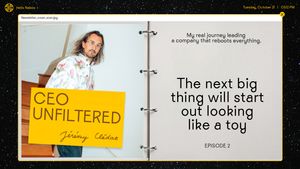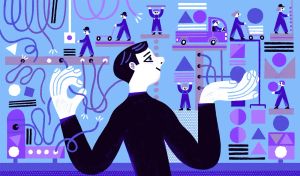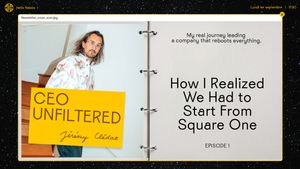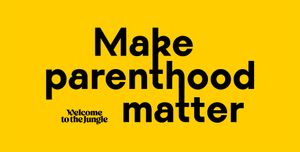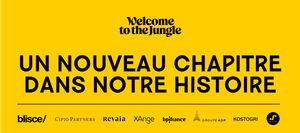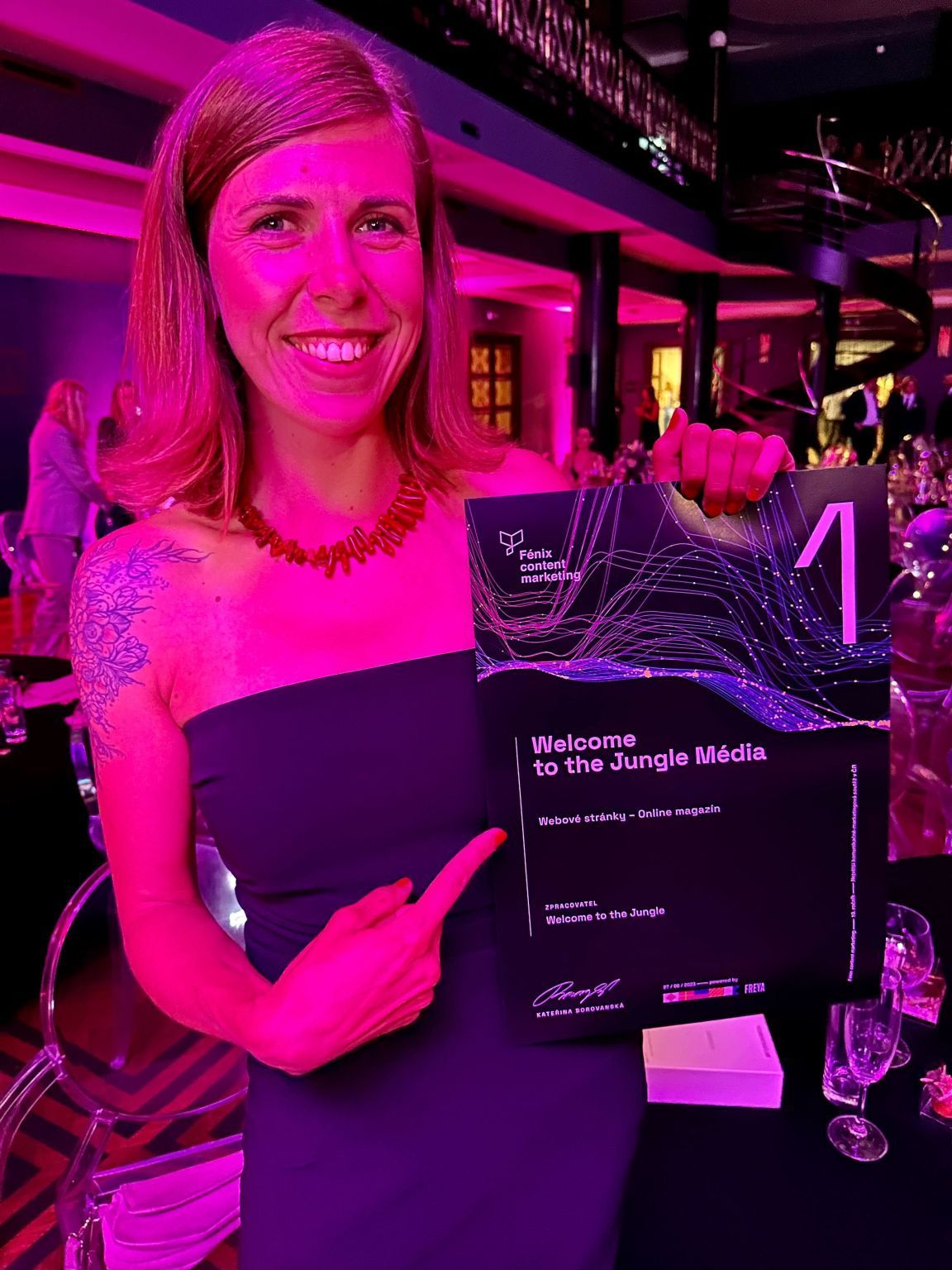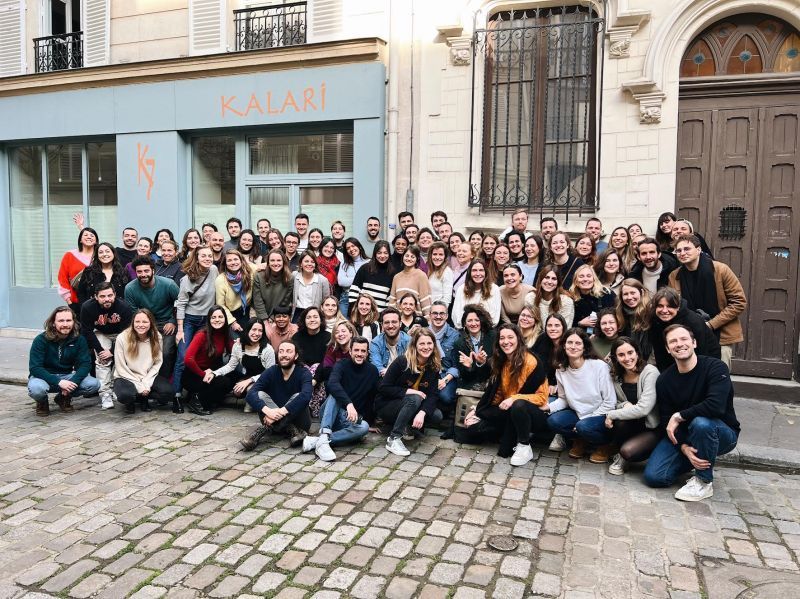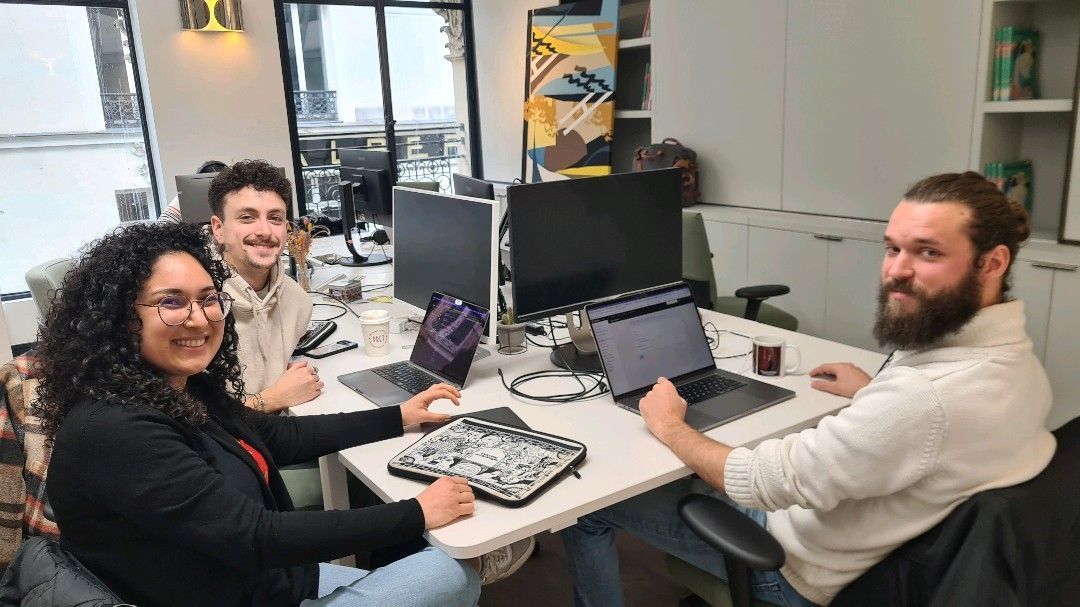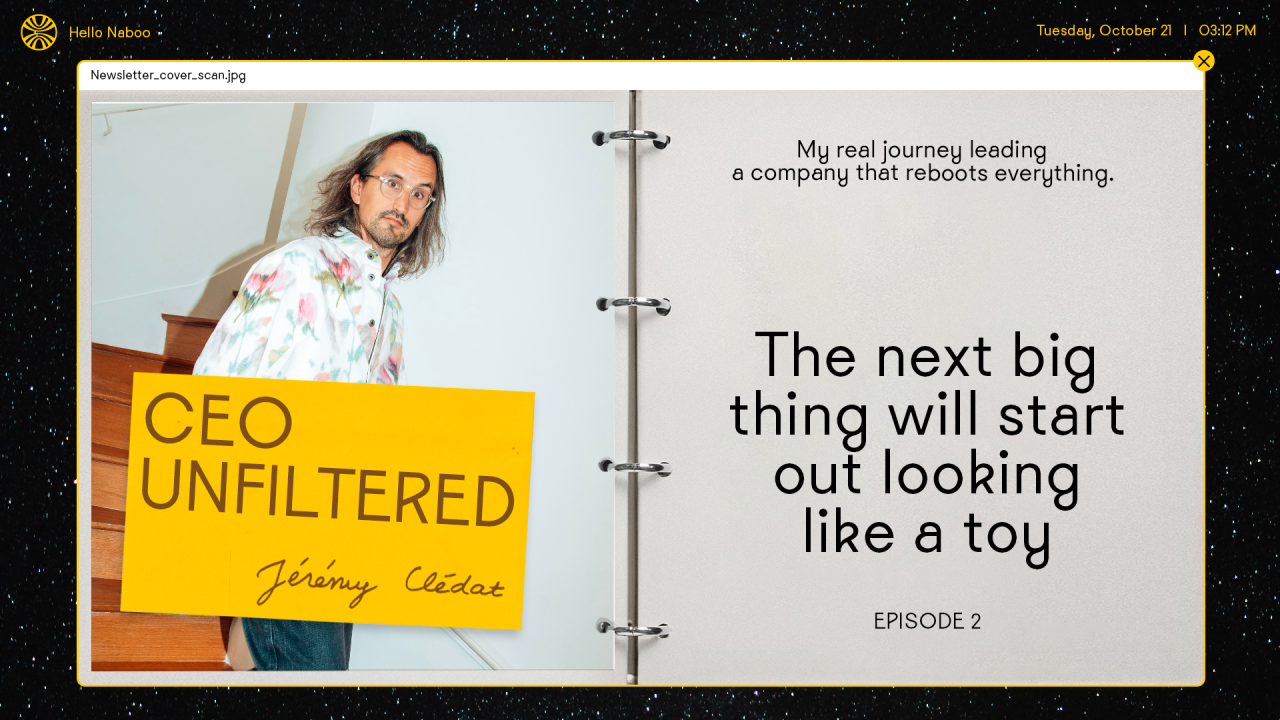This is what Chris Dixon, an American entrepreneur and investor, famously said on his blog in 2010. “The next big thing will start out looking like a toy”. The article is short and fantastically on point, and fifteen years later, it has found its perfect example. For many, when AI appeared, it sounded exactly like that - a toy, merely some new features you could sprinkle on top of our existing products.
How wrong that statement turned out to be. Especially in the recruiting industry!

Hi recruiters, pleased to meet you
Online recruiting was the perfect industry to be inevitably disrupted by AI. It has all the attributes of a world ripe for it. Recruiting is incredibly labor-intensive and costly. Manual resume screenings take hours and are prone to human error. Recruiters are drowning in thousands of unqualified applications, risking missing the perfect candidate hidden in the noise. Unconscious biases are harming decisions and impacting workforce diversity. Finally, data is notoriously inconsistent - recruiters are having a really hard time understanding how their hiring funnel works.
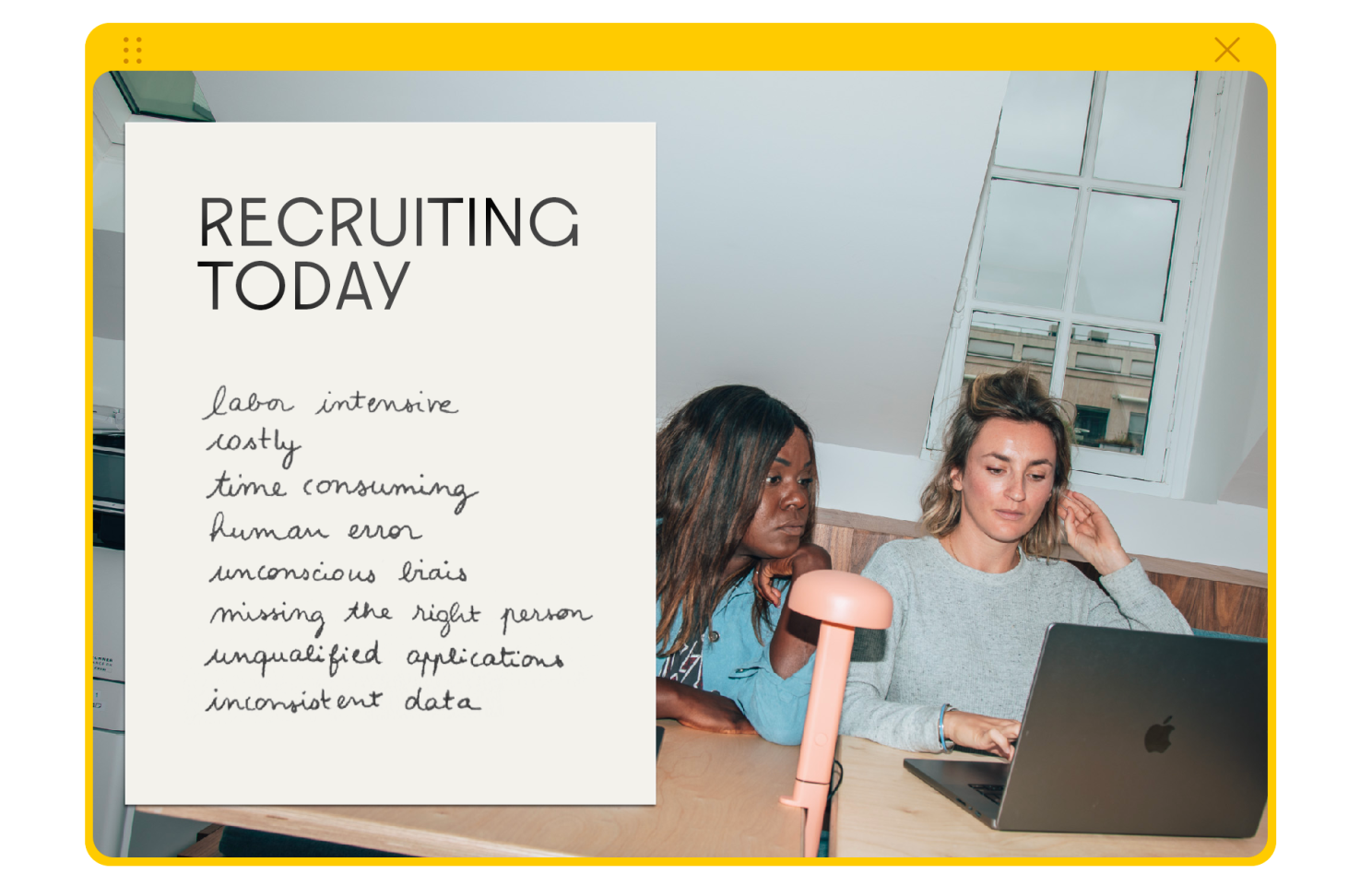
The current economic downturn doesn’t help either. The online recruiting industry is experiencing its worst crisis since the launch of Monster in 1994. HR budgets are cut, and there are fewer recruiters out there, who need to do way more with less. In a way, recruiting is in survival mode.Is AI an industry savior?
At Welcome to the Jungle, we made a decision. We don’t know if it will save the industry, but we definitely want to be part of the ride.
Jumping on the AI bandwagon
Bad news. Once you’ve understood that AI is inevitable, you very quickly realize that time is running out. And you’re late to the game. The conversation shifts from “we should do it” to “how fast can we do it to stay relevant”. You need to move quickly, but not everything can be rushed. And here's where it gets tricky: there's pressure from all sides, and not everyone is aligned.
Investors expect AI to supercharge your P&L, reduce team size, and increase productivity. AI is the new “providential man”. They're convinced just like you are, which is good, but with a very different approach to time. Impact will definitely not be as quick as everyone thinks in board meetings.
Meanwhile, you expect your teams to be hyped by all those new tools and the new technology, but the reality is most don’t really care. Most people don't really want to use AI at work. They either don't care, or they still think it's more hype than game-changer. Worse, some are genuinely scared about what it means for their jobs (I won’t blame them for that, they’re probably right).
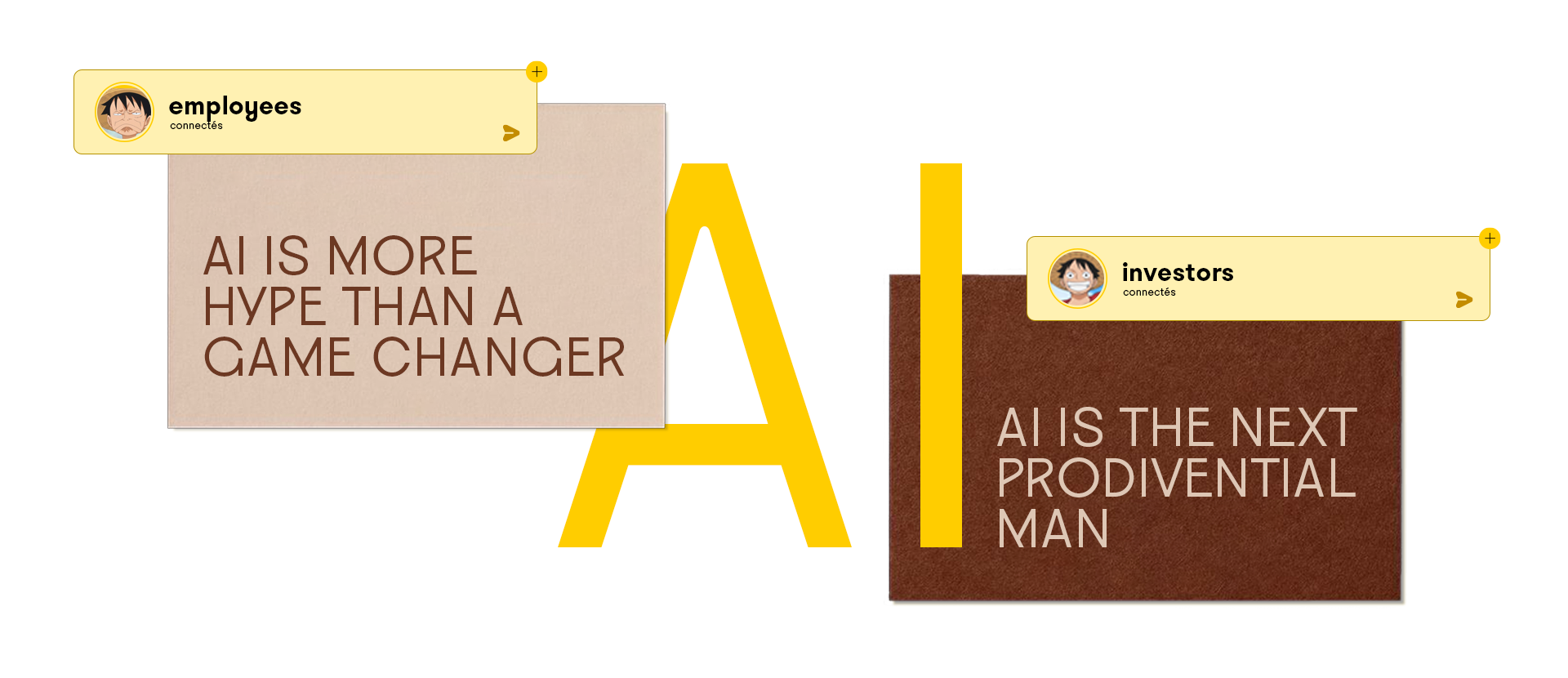
It becomes a bit more complicated than what you initially anticipated. In this scenario, there's no other option than to "force" change. I spent a lot of time asking other founders and CEOs how they did it, for the ones who did. It’s easier for 2 year-old companies: they were born this way. For 10-year-old companies like Welcome to the Jungle, it’s a complete different story.
Among the feedback I got, there were different options. Some took the hard approach - letting engineers go if they didn't embrace AI tools. Pretty efficient, but that seemed quite extreme to me. Others chose a middle ground: intensive internal training programs, dedicated AI champions, and showcasing real wins to build momentum. That’s what we chose.
It was time to go all in.
Feel the fear and do it anyway

Actually, our AI journey started way before. Back in September 2022, one of our Data Scientists started exploring use cases, running small tests, and gradually building AI capabilities that helped us internally. We started talking about job classification, data organization, things that weren't really visible to our users but made us more efficient behind the scenes.
Then, we acquired Otta in 2023. Its machine learning system for candidate recommendations was more advanced than anything we had built. We started asking ourselves bigger questions: How do we scale this? How do we move from AI as a feature to AI as our foundation?
At the same time, I was asking myself: what is really AI anyway? We didn’t have the resources to really answer this question, and it became clear that we weren't going to get very far with this setup. Then we also acquired Lymia in 2024, an AI powered sourcing product in France. Things were starting to fall into place.
The final push had to be cultural. To drive such a change, you need the right people with the right mindset. We all resist change and fear novelty, even if it looks appealing. You need people who will embrace the change and convince everyone it’s the right path forward.
The biggest change was organizational. We promoted new VP Product and VP Engineering who are all in with this mission. Our founding CTO also shifted to a full-time AI role, with a compelling mission: change the entire company's mindset about AI.
We also restructured our teams completely. Data scientists are no longer on the side, they're integrated into product teams, working directly with engineers, designers, and developers. Every roadmap is now adjusted based on AI capabilities and opportunities.
Hard choices had to be made. Some people didn’t believe in this journey and left. We had to rethink our roadmap and product strategy, and made some radical choices. We decided to rebuild one of our products, the ATS, from scratch. It’s not an easy call when you’ve been working on it for almost a decade. Sometimes, you really need to look forward, not backwards.
It’s exceptionally hard. At first, you only see the bad sides of your decisions. I had a few weeks of very bad sleep, I can tell you that! And then you start seeing glimpses of good news. You can build products with fewer compromises, because you’re rid of some legacy constraints. You can start taking full advantage of the technology that is available today. You finally get the freedom to build something genuinely innovative rather than just incrementally better.
AI literacy
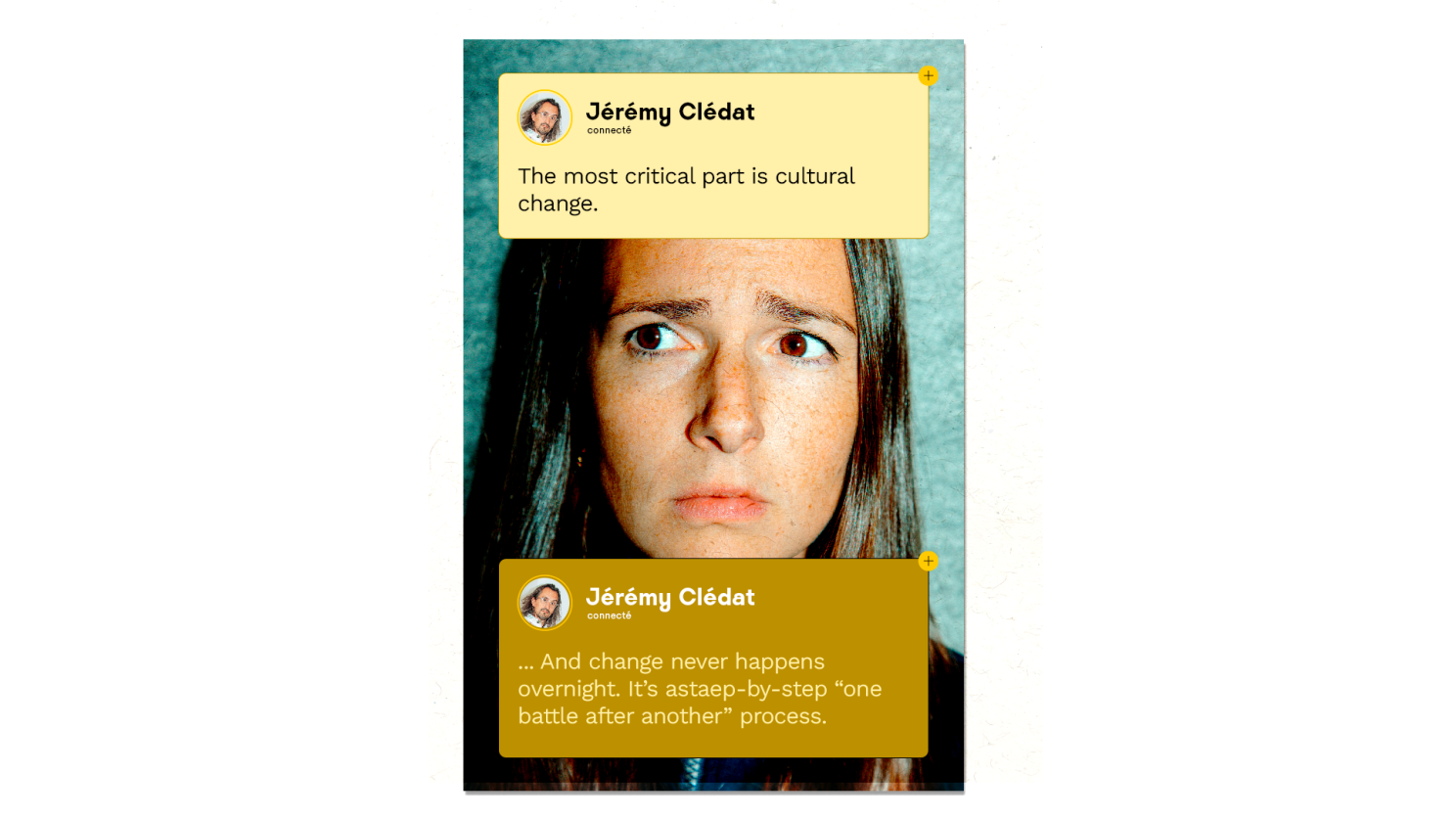
Product transformation is only part of the journey. The most critical part is cultural change. Promoting a new way to work is hard, and it’s even harder to convince people that velocity is now as critical as execution itself.
Change never happens overnight, it’s a step-by-step, “one battle after another” process. I learned that energy and enthusiasm are not enough, and that you really need the right framework to win.
We needed structure so we built one, and we professionalized our approach. We got a dedicated AI transformation team (a big investment for us!), built an AI Champions program covering all teams within the company, and started training 100% of our employees. We updated our legal and compliance framework, and started tracking AI usage.
Worth mentioning, we implemented Dust as our internal AI platform. At first we launched it as yet another internal software tool, and it failed. Then we invested in adoption (first with an external consultant then by our AI team) and it finally took off. Everyone started using it, and today people are building custom AI agents in full autonomy.
A key insight? AI adoption can't be on the side. It needs to be a central element of how we operate. Put it in your OKRs or anywhere where it really makes it a priority. And those responsible for adoption need to be the same who provide tools and processes. You need to walk the talk.
The results so far
Internally, have we already seen a banger? Something that changed everything? Definitely not. But we’ve already seen multiple improvements. Small wins everywhere. Creativity in every team. And that’s what really matters. Nobody needs to wait for someone to help them crack some use cases. They have the tools to try to crack the problem themselves.
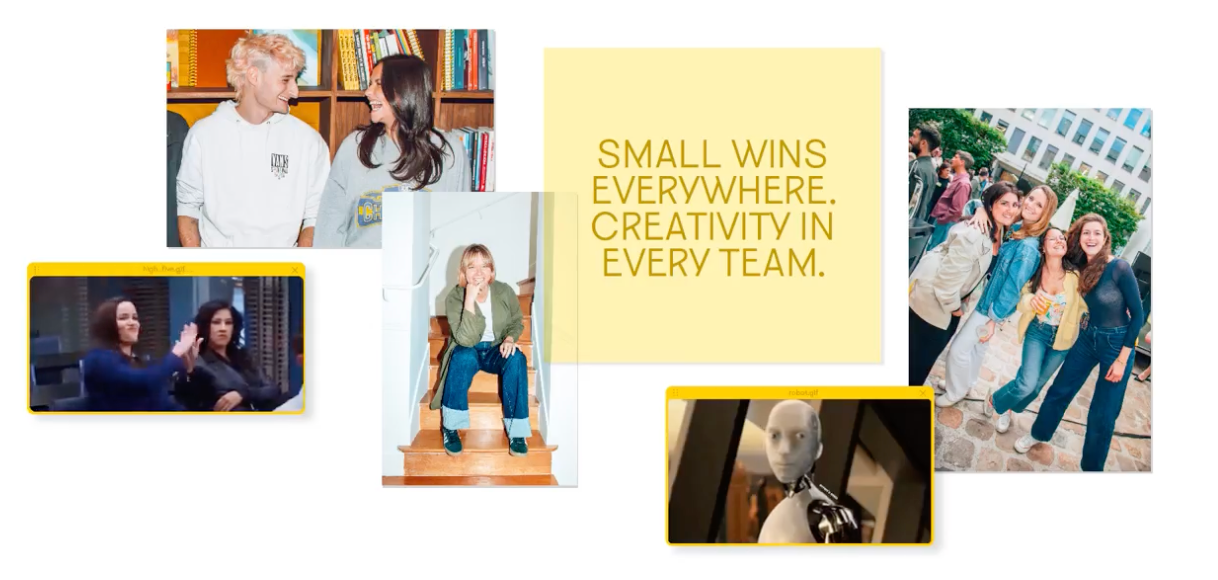
Someone created an AI assistant to support invoice management. Another developed an AI agent to test marketing messaging to specific HR personas. Others built assistants to score employer branding for our clients… I find this really amazing. And empowering. And I’m pretty sure that out of one of those use cases, lies our next product. Let’s simply let people work their magic.
Today, internal productivity is getting better. Products are built in an “AI first” way. Candidate matching is becoming more accurate. Content generation is faster and more personalized. Most importantly, our teams are starting to think differently about what's possible.
Skeptics often dismiss AI because they don't see immediate, overnight changes. They're looking for the wrong thing. I love overnight success, but 10 years of entrepreneurship told me that you should look more for small successes that compound over time into huge wins. You should want incremental changes, and ultimately you shouldn't be speaking about AI anymore. It should be embedded in everything you do. That’s the ultimate goal.
And when we reignite creativity at all levels of the company, isn’t it a way to make people start enjoying their work again?
The road ahead
I feel that we started this journey a long time ago, but this really is just the beginning. The first milestones are encouraging. Our incoming products feel stronger than ever, and what is happening within the company makes me believe we can operate in a brand new way.
I didn’t think it would be that hard. You’re always running to stay in the race. The risk of exhaustion is real. There is absolutely no way to predict the future, and where you will be in the next 12 months.
AI is reshuffling everything and we don’t know who is going to finish the race alive. But damn, it feels good to have a bib and run it.

